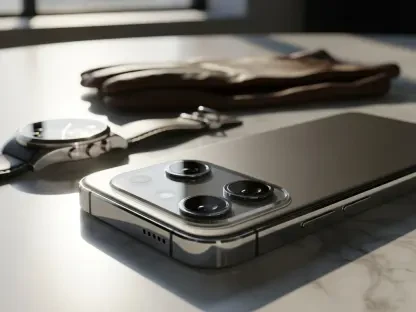Wearing smartwatches while we sleep may initially seem unnecessary, but this modern technology offers a range of benefits that can significantly enhance our health and nighttime efficiency. Smartwatches are commonly associated with fitness and daytime activity monitoring, but their utility extends well into the night. This article explores the top benefits of wearing smartwatches during sleep, encapsulating the insights through the lens of sleep tracking, health monitoring, and vital alerts.
Sleep Tracking: Mapping Your Rest
Understanding Sleep Patterns
Smartwatches excel in tracking your sleep patterns, providing a detailed analysis of your nightly rest. These devices can map out periods of deep, light, and REM sleep, giving users a clearer picture of their sleep quality. Understanding these patterns can help individuals identify what influences their sleep, such as environmental factors like noise or temperature changes. With these insights, users can make informed decisions to improve their sleep environment and habits.Additionally, smartwatches can highlight variations in sleep due to different circumstances or routines, providing actionable insights. For example, noticing a difference in sleep quality on rainy nights versus dry ones can lead to adjustments that optimize sleep conditions. By understanding these nuanced influences, users can take specific steps to enhance their overall sleep quality, potentially addressing issues like insomnia or restless sleep. Furthermore, this data can be shared with healthcare providers to refine treatment plans or diagnose underlying sleep disorders.
Regulating Sleep Schedules
Setting a consistent sleep schedule is crucial for maintaining a healthy lifestyle, and smartwatches play a pivotal role in this aspect. With bedtime reminders and gentle wake-up alarms, these devices help regulate sleep patterns. This function encourages users to go to bed and wake up at the same times each day, which is beneficial for the body’s internal clock. The regularity helps synchronize the circadian rhythm, which is essential for a restful and restorative sleep cycle.Smartwatches offer the ability to sync with your daily routine, creating a structured sleep environment that can improve overall sleep quality. Consistency in sleep times can lead to better rest and enhanced daily productivity, making smartwatches a valuable tool in sleep management. By ensuring you wake up feeling more refreshed, these devices can positively impact your mood and cognitive function throughout the day. The growing trend of integrating technology into personal health regimes underscores the significant role these devices can play in our lives.
Health Monitoring: Keeping an Eye on Vital Stats
Resting Heart Rate Insights
One of the profound benefits of wearing a smartwatch during sleep is the continuous monitoring of your resting heart rate (RHR). This metric is crucial for gauging cardiovascular fitness and overall heart health. During sleep, the body is in its most relaxed state, providing an accurate measurement of RHR. Smartwatches can collect this data seamlessly, giving users a comprehensive understanding of their heart health.Continuous tracking throughout the night helps in creating a comprehensive view of your heart’s performance, offering insights that can be critical in detecting any irregularities. Persistent anomalies in RHR could necessitate a visit to a healthcare professional for further evaluation. Additionally, this data can be invaluable in adjusting lifestyle choices such as diet, exercise, and stress management. By keeping an eye on these vital stats, users are better equipped to maintain their cardiovascular health and detect issues before they become severe.
Tracking Heart Rate Variability
Heart Rate Variability (HRV) is another valuable metric captured by smartwatches. HRV measures the variation in time between each heartbeat, which is an important indicator of the autonomic nervous system’s function and overall stress levels. This measurement provides a unique glimpse into how the body handles stress and recovery, playing a significant role in long-term heart health. Consistently tracking HRV over several weeks provides a baseline that reflects your body’s response to various stressors.This continuous data collection helps users understand how well their body is recovering and managing stress, which is vital for maintaining good health. It serves as an early warning system, encouraging users to adjust their lifestyle if necessary to improve heart health and overall well-being. By understanding these fluctuations, users can take proactive steps to manage stress better, improve sleep quality, and enhance daily performance. The use of HRV as a metric underscores the sophisticated capabilities of smartwatches in providing holistic health insights.
Alarms and Alerts: Staying Connected and Aware
Wake-Up Alarms and Sleep Quality
Smartwatches offer more than just a traditional alarm clock; they provide smart alarms that can wake you up during the lightest phase of your sleep cycle. This functionality ensures you wake up feeling more refreshed and less groggy, as opposed to being jolted awake from a deep sleep phase. By utilizing this advanced feature, users can significantly improve their morning routine, setting a positive tone for the day ahead.The gentle vibrations from the smartwatch make for a less disruptive and more pleasant waking experience. In addition to improving sleep quality, these smart alarms help users maintain a steady wake-up time, which is essential for a consistent sleep-wake cycle. The data accumulated by these devices also helps in adjusting sleep habits to find that perfect morning wake-up time. This optimization can lead to better mental alertness and productivity throughout the day, making smartwatches an indispensable part of modern living.
Environmental and Safety Alerts
In addition to managing wake-up times, smartwatches are programmed to provide essential alerts during sleep. For instance, these devices can notify users about significant environmental changes or potential dangers, such as smoke alarms going off or unexpected loud noises. This feature is particularly beneficial for individuals with hearing impairments who might otherwise miss critical alerts during the night. By staying vigilant, these environmental alerts enhance personal safety.Parental monitoring can also be enhanced through smartwatches, offering alerts for noises or movements in a baby’s room. This allows parents to respond promptly without the need for constant, direct observation, adding a layer of safety and reassurance. Integration with smart home devices can further facilitate this monitoring, ensuring that parents are always connected and aware of their child’s well-being. The versatility and responsiveness of smartwatches make them an invaluable tool for both personal health and safety monitoring.
The Rise of Health Technology
Empowering Users with Data
As health technology continues to evolve, smartwatches are becoming essential tools in personal health management. They empower users with vast amounts of data about their health and wellness, promoting self-awareness and proactive health measures. By interpreting this data, users can make informed decisions to improve their lifestyle and overall well-being. The ability to monitor vital signs and sleep patterns empowers users to take control of their health in unprecedented ways.The constant flow of information encourages a proactive approach to health, transforming smartwatches into indispensable companions for personal healthcare. Users are equipped with the necessary tools to monitor their health consistently and effectively. The integration of advanced sensors and algorithms in these devices enables precise tracking and more accurate health insights. As these technologies become more sophisticated, the role of smartwatches in health management is likely to expand even further.
Integration into Daily Routines
Wearing smartwatches while sleeping might initially seem unnecessary, but these modern devices offer a range of benefits that can enhance both our health and nighttime efficiency. Often associated with tracking fitness and monitoring daytime activities, smartwatches also have significant nighttime applications. This article delves into the primary advantages of wearing smartwatches during sleep.Firstly, sleep tracking is a major benefit. Modern smartwatches come equipped with sensors that monitor various sleep stages, such as light, deep, and REM sleep. This data allows users to identify patterns, helping improve sleep quality over time. With better sleep, individuals can experience improved overall health, mood, and productivity.Health monitoring is another key advantage. Besides tracking sleep, smartwatches can monitor vital signs like heart rate, blood oxygen levels, and even detect irregularities such as sleep apnea. By keeping an eye on these metrics, users can address potential health issues early.Lastly, smartwatches can send vital alerts during the night. For instance, if a significant drop in blood oxygen levels is detected, the watch can alert the wearer, potentially preventing severe health issues. In essence, wearing a smartwatch at night provides valuable insights and alerts that can significantly contribute to better health and well-being.









